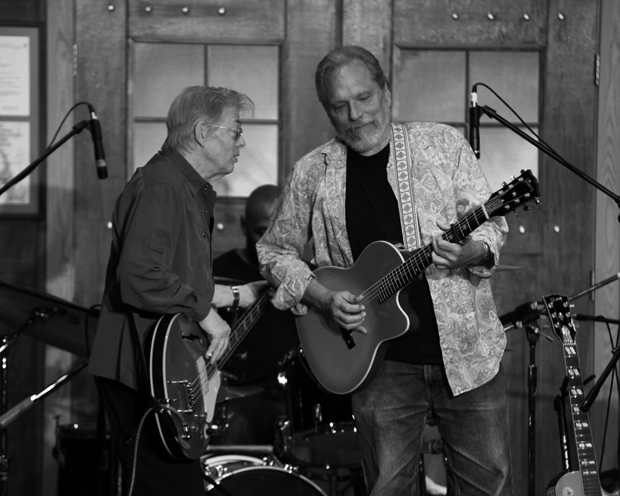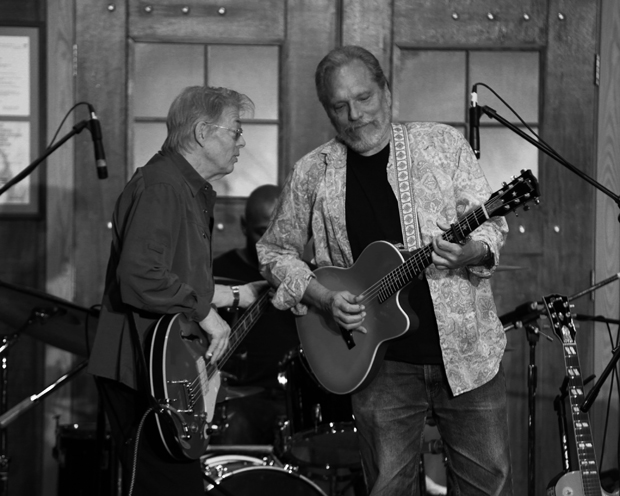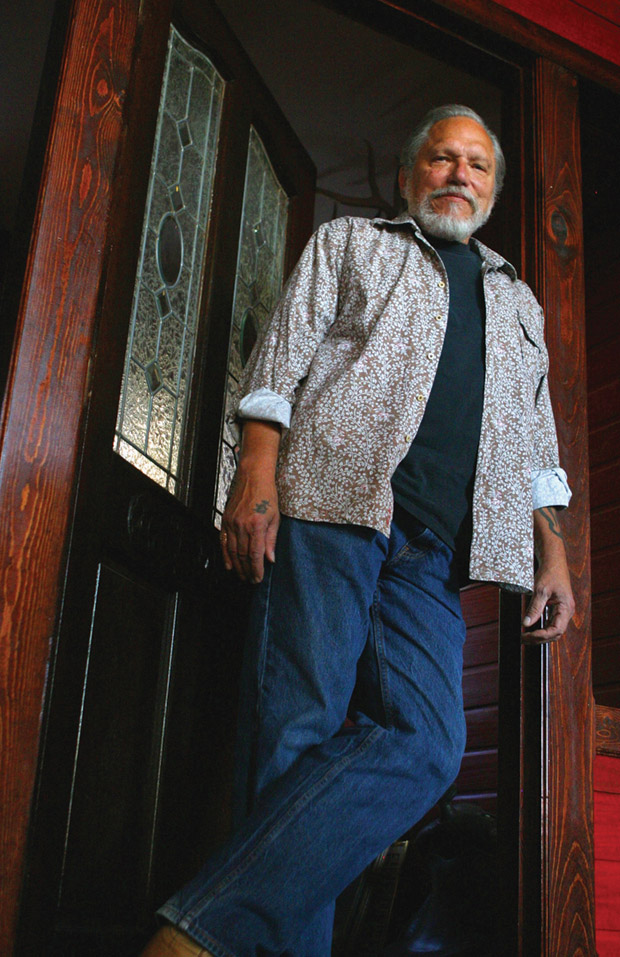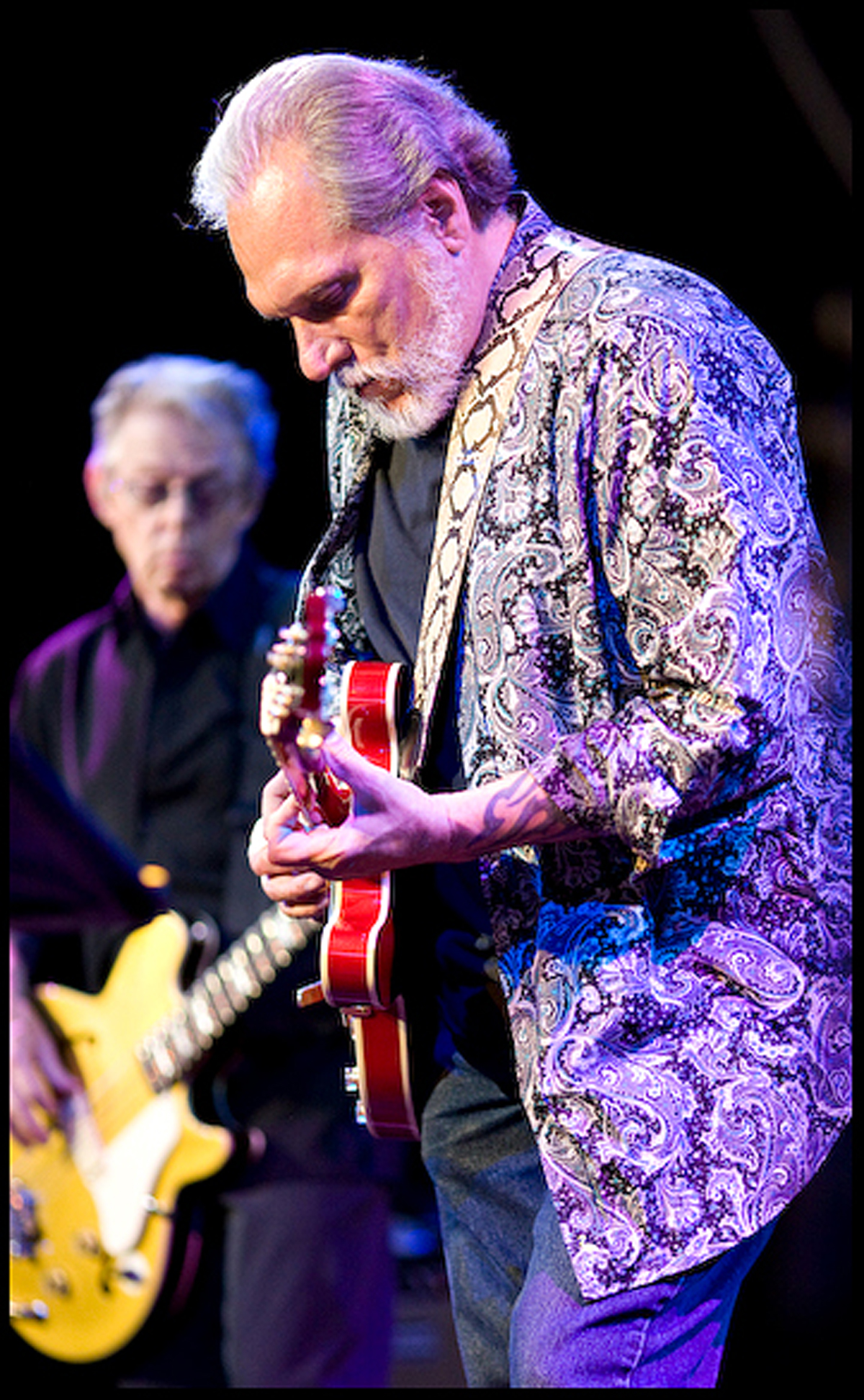Interview: Jorma Kaukonen Discusses the New Hot Tuna Album, 'Steady As She Goes'

Jorma Kaukonen, one of the founders of Jefferson Airplane -- who also co-founded Hot Tuna with Airplane bandmate/bassist Jack Casady -- has a lot on his plate.
Not only did he and Casady recently release Steady As She Goes, the first Hot Tuna album in nearly 20 years, but the duo is touring the East Coast this summer.
In addition, Kaukonen and his wife, Vanessa, run the 119-acre Fur Peace Ranch, a guitar camp/studio in southeast Ohio, where the guitarist and other instructors host songwriting and composition workshops.
Kaukonen began playing guitar in 1954, when “it wasn't the cool instrument,” and has since been inducted into the Rock and Roll Hall of Fame with his Jefferson Airplane compadres.
Guitar World contacted Kaukonen at his home in Ohio just a few minutes before he was going to sit down to watch “The Chronicles of Narnia: The Voyage of the Dawn Treader” with his daughter.
Here's how it went.
GUITAR WORLD: Why did you want to play the guitar?
Get The Pick Newsletter
All the latest guitar news, interviews, lessons, reviews, deals and more, direct to your inbox!
I was living in Washington, D.C., and there was a lot of country music and rockabilly that some of my friends played. There was just something seductive about the guitar.
Was it the shape, the sound?
The whole deal, and the fact that you could do it by yourself. Plus it was a lot easier to carry than a piano.
Do you still have your first guitar?
My first guitar was a brand-new Gibson J45, and I wish I still had it. I still have my second guitar — a '59 Gibson J50.
Did you take formal lessons?
One of the conditions my dad had for me when he got me the guitar was to take formal lessons. The guitar store, called The Guitar Shop, in Washington, D.C., where I took guitar lessons, is still there. Back then, it was owned by Sophocles Pappas, a contemporary of Andrés Segovia, a classical guy, and Bill Harris, a jazz guy who lived in the area.
I took lessons from Sophocles, and I think he was totally repulsed by the music I wanted to play. In an effort to steer me away from those songs, the first songs I learned there were “This Old Man” and “Down in the Red River Valley.” I learned them because I realized there was stuff I needed to know in order to play the songs I wanted to play.
After all these years in Jefferson Airplane and Hot Tuna, is there a guitar that you can't live without?
That would be my Jorma Kaukonen Model M30 Martin. Martin made it for me two years ago. I'm not a guitar designer, but Dick Boak (artist relations representative at Martin), helped me out. Martin has a huge museum in Nazareth, Pa., and they allowed me to go the museum and let me play all the old guitars. Dick helped me discover what I liked.
Throughout this process, did you find out things about yourself that you never knew?
Absolutely. The one thing I found out is I like a wider neck than I did when I got my J45 and J50. I also found I like the modified V-shape neck, which is something I never thought about before.
What are your thoughts about having a signature guitar?
One weekend at the Fur Peace Ranch, we had Dan Hicks and the Hot Licks come and play. I was sitting in with them and one of the gals saw my guitar with my name on it and said, “That's probably better than getting a Grammy.” I said, “You know something? It just might be.”
Speaking of the Fur Peace Ranch, tell us about its goals and purpose.
The real importance was to give me a venue where I could teach, but over the years, a number of hard-to-qualify things have happened. Most people who come to the ranch tend to be adults, but every now and then, we get kids.
We had this young man who came about seven or eight years ago. He was thinking about dropping out of school and I told him that I didn't think it was a good idea. Well, I just got a note from his mother. He just graduated with his master’s at the top of his class from the University of Southern California in the music program. I can't take credit for that, but his mother sent me a letter that said, “Dreams do come true.”
As far as dreams go, you and Jack have recorded the new CD “Steady As She Goes,” which is the first Hot Tuna CD in 20 years. How did that come about?
Jack and I, of course, have never quit playing together. We're always playing together, but since 1990, when we did our last album for Epic, it never seemed right to do another album, so we never pursued it. I had recently recorded two solo projects for Red House Records. Larry Campbell produced the last one, “River of Time.” We got to talking about Hot Tuna and I saw a glint in his eye. So I went to Eric Peltoniemi, the president of Red House Records, and said, “How would you like, instead of a new Jorma record, a new Hot Tuna record?” He said, “I would like that.”
I got off my lazy butt and I wrote a bunch of songs, I co-wrote some songs with Larry and Jack and my buddy Barry (Mitterhoff), my mandolin player. Things fell into place. We recorded it in 11 days and still liked each other (laughs).
I know you're anxious to watch “The Dawn Treader” with your daughter, so do you have any parting words about music in general?
Music was hugely important to me as a kid. It gave me a sense of identity I never had before I started to play. In the beginning, I never thought of myself as a guitarist. I just loved the music and loved playing the songs. All of a sudden, I had an identity — the kid who played the guitar. And that was really important to me. I know everybody's not like that, but I believe music is an intrinsically important part of all of our lives. I don't believe we can exist without it.




“I just learned them from the records. I don’t read tabs or anything, I don’t read music – I learned by ear”: How a teenage Muireann Bradley put a cover of Blind Blake’s Police Dog Blues on YouTube and became a standard bearer for country blues
“The Strat was about as ‘out’ as you could get. If you didn’t have a Floyd Rose, it was like, ‘what are you doing?’”: In the eye of the Superstrat hurricane, Yngwie Malmsteen stayed true to the original










